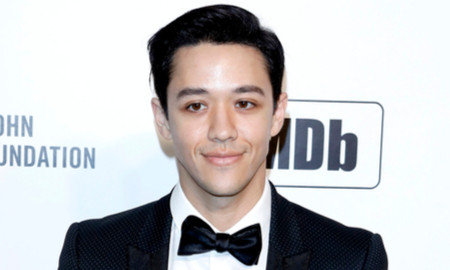Sign up for our free daily newsletter
YOUR PRIVACY - PLEASE READ CAREFULLY DATA PROTECTION STATEMENT
Below we explain how we will communicate with you. We set out how we use your data in our Privacy Policy.
Global City Media, and its associated brands will use the lawful basis of legitimate interests to use
the
contact details you have supplied to contact you regarding our publications, events, training,
reader
research, and other relevant information. We will always give you the option to opt out of our
marketing.
By clicking submit, you confirm that you understand and accept the Terms & Conditions and Privacy Policy
A federal appeals court has revived a copyright infringement claim brought by a celebrity choreographer who had accused Epic Games, creator of popular video game Fortnite, of infringing his work.
The US district court from the central district of California had originally agreed with Epic, and had dismissed the choreographer Kyle Hanagami’s copyright claims. This was on the grounds that Hanagami failed to “plausibly allege” that Epic’s virtual animation, known as an emote, was “substantially similar” to his registered choreography.
However, a panel of three judges at the the US Court of Appeals for the Ninth Circuit has now reversed the court’s decision and remanded for further proceedings on claims of direct and contributory infringement of a choreographic work.
Plaintiff Hanagami, who lists Britney Spears, Justin Bieber and Jennifer Lopez among his high-profile clients, owns a registered copyright in a five-minute choreographic work. He alleged that Epic Games sold an emote, and that this emote copied a distinct, four-count portion of his registered choreographic work.
To prevail on a claim of copyright infringement, a plaintiff must show that their original work and the allegedly infringing work are “substantially similar”.
The panel held that under the “extrinsic test” for assessing substantial similarity, Hanagami “plausibly alleged” that his choreography and Epic’s emote shared substantial similarities.
The panel of judges added that like other forms of copyrightable material such as music, choreography is composed of various elements that are “unprotectable when viewed in isolation”. What is protectable is the choreographer’s selection and arrangement of the work’s otherwise unprotectable elements.
“‘Poses’ are not the only relevant element,” they said, and a choreographic work also may include elements like body position, body shape, body actions and use of space.
They also disagreed with the district court that the copyrighted material was “short” and only a “small component” of Hanagami’s overall work. The panel declined to address the issue whether the work was entitled to broad or only thin copyright protection.
In the opinion by circuit judge Richard Paez, he said that dance is one of the oldest forms of human expression. “Recognition of dance as a form of copyrightable subject matter, however, is a far more recent development.”
While early versions of the Copyright Act extended statutory protection to dramatic works and musical compositions, dance long remained outside the purview of copyright law.
He continued that the field of choreography copyright has remained a “largely undefined area of law”. Few courts have had occasion to consider the scope of copyright protections for choreographic works. “This appeal presents us with that novel opportunity,” he added.
Commenting on the case, partner at Saul Ewing, Darius Gambino, said: “This is an important decision not just as it relates to the protection of dance and choreography as art forms, but also as it relates to the use and sale of ‘emotes’ within video games. Many video games monetise emotes, including Fortnite, NBA 2K, League of Legends and others. This decision is saying ‘be careful’ if you use dance moves that belong to someone else.”
Kyle Hanagami was represented by Hecht Partners’ David Hecht (argued), Maxim Price and Kathryn Boyd.
Epic Games was represented by Kirkland & Ellis’s Dale Cendali (argued), Joshua Simmons (New York) and Yungmoon Chang (Los Angeles).
Email your news and story ideas to: [email protected]





